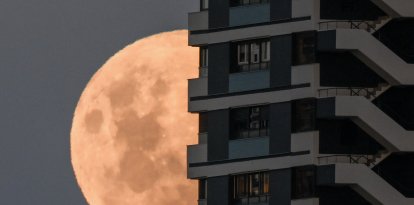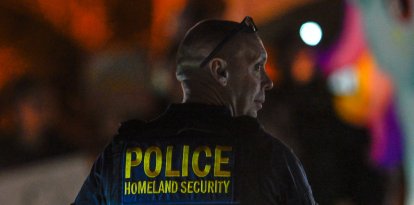Squatters who invaded a house in New York sue the owners and accuse them of having been 'unfairly' evicted
The alleged squatters decided to move into the property without a lease and changed the locks without consent, according to a report.

(Charly Triballeau / AFP)
A New York City couple is in an intense legal battle after alleged squatters moved into their duplex and refused to vacate their $930,000 investment apartment in Queens.
Denis Kurlyand and Juliya Fulman are a couple who invested $530,000 to renovate a property in Jamaica, Queens, several years ago. However, all the money they allocated is being threatened by two alleged squatters, identified as Lance Hunt and Rondie L. Francis, who decided to settle on the property without a lease and change the locks, as reported by Daily Mail.
The problems began when a real estate agent named Ejona Bardhi came on March 5 to inspect the property before allowing tenants to enter. She discovered that two strangers were living on the property and made modifications without consent. Bardhi immediately contacted authorities, who agreed to escort the squatters off the property after several documents for the home were presented.
However, the problem did not end there. When Fulman and her husband entered the house, they were stunned to discover that their property had suffered damage: scratches on the walls, wear on the floors, and a strong smell of drugs permeated the air. The chaos was exacerbated when the property owners received a court notice stating that the alleged squatters were suing them.
"It's absolutely absurd. These people literally broke into my house. It's not fair to us as homeowners that we are not protected by the city," Fulman said, revealing that she has already spent more than $4,000 in legal bills from the lawsuit.
The alleged squatters state that they legally leased the property, have been residing there since January, and were unjustly evicted. However, both the owners and the real estate agent claim that the squatters presented falsified documents to support their claim.
Notably, within New York's five boroughs, squatters only need to remain on a property for 30 days for a wide range of legal protections to take effect, making it difficult for the owner to evict them.
"Somebody broke into my house, and I'm in court getting sued by them. How can we be here? How is this possible? There have to be safety precautions in place," Kurlyand criticized with obvious concern about the increase in this type of cases. "The court system is not favorable to landlords. It could take years to evict someone who illegally broke into your house? Where's the law in that? Why work hard to pay rent or mortgages when you can break into somebody's house every couple of years and have luxury living?" he added.
The legal battle between the owners and the alleged squatters reflects a broader issue. The laws surrounding the illegal occupation of properties have generated debates and controversies, and this problem has been increasing in different parts of the country.
In California, a group of citizens decided to take the task of evicting squatters into their own hands. They created a business that allows owners to hire specialized professionals to evict squatters from their properties.
Meanwhile, in Florida, Governor Ron DeSantis recently signed new legislation aimed at protecting property rights by giving authorities the power to remove squatters and establish tougher penalties for those who break the law.

























